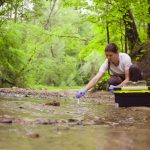The renewed essential skills framework from Employment and Social Development Canada (ESDC) – now retitled Skills for Success – outlines the foundational and transferable skills required to engage, adapt and thrive in a career. These skills are used every day, for virtually every task and play an integral role in finding employment opportunities, successfully completing interviews, and attaining and maintaining employment. Essential skills/Skills for Success pave the path to workplace success and support the services provided by career development practitioners (CDPs). The essential skills framework contains tools that CDPs can use to assess clients’ capacities, explore and match occupations based on skills, recommend training, track progress and develop plans for long-term career growth.
Currently, the framework is not always part of standard career development practice, and definitions and understandings of its uses often vary. Guided Pathways is a five-year national project funded by the Government of Canada and led by Alberta Workforce Essential Skills Society (AWES). This innovative training is helping CDPs integrate and standardize the essential skills framework in practice for consistent and effective use of its tools and better support for clients. Over 900 CDPs across Canada will participate in online essential skills training, leading to more effective pathways to employment for workers in Canada.
Program overview
The first Guided Pathways online training sessions began on May 3, 2021, and since its launch, the program has had over 400 registrants. Training is modularized into four weeks of content on the background, assessments and application of essential skills, which includes complexity levels, occupational profiles and comparative content on Canadian Language Benchmarks (CLB).
Participation in the program also provides CDPs with access to a national Community of Practice where they can access additional resources and materials from program facilitators and connect with peers across the country to discuss their practice, ask questions, and build a network of knowledge and support.
The ‘ah-ha’ moments
In Guided Pathways, participants are encouraged to explore their clients’ current skills and to use the framework to understand clients’ capacities to effectively match their skills to occupations and develop long-term career goals and plans. One participant stated that before she attended Guided Pathways, she found the framework overwhelming and was unsure how to measure clients’ competencies or make meaningful connections. After Guided Pathways, she realized how essential skills can support clients where they stand, and that it is possible and beneficial to assess someone’s skills and match jobs according to their essential skills levels.
By completing activities on essential skills concepts like complexity levels, participants are also gaining a deeper perspective on how a client’s essential skills can affect their ability to engage with employment services. Seeing what written materials look like to someone with lower-level skills has encouraged participants to view their services through a different lens and think about how they can use the essential skills framework to help clients overcome skills-related barriers.
Participants in the spring sessions discussed ways to integrate the framework into everyday practice. The most common suggestions were:
- Ensure materials target various skills and language levels
- Simplify written materials and include infographics and images
- Be flexible and prepare multiple examples and explanations for concepts
- Check for understanding and be sure clients can use and apply what they learn
- Customize presentations and information to each client’s skill levels
- Discuss past employment in the context of essential skills strengths and challenges
- Explain the positives, value and real-life uses of the framework to build trust and buy-in
- Don’t assume skill levels based on education, work history, CLB levels or the level of other skills
- Include the client in discussions about their strengths, struggles and interests, and training opportunities
- Advocate to employers that ES training can boost productivity and profits
Great for CDPs, even better for Canadian workers
By completing training, it is projected that CDPs will positively affect employment outcomes for 700,000 clients. This means that in the constantly shifting labour market, clients will be better equipped to:
- Understand how essential skills connect to employment
- Explore careers and identify attainable occupations based on skills, strengths and interests
- Analyze job tasks to determine if they can successfully complete them based on their essential skills levels
- Communicate their skills on resumes and in interviews
- Adapt to changes in the workplace
Additionally, Guided Pathways aims to help integrate the framework nationwide, and as such is recognized by all provincial accreditation programs and can be applied toward continuing education credits.
Employing the framework as a standard practice will benefit both CDPs and clients. For CDPs, standardization relieves uncertainty about incorporating a skills-based framework and ensures consistent definitions, applications and tools. For clients, it ensures consistent service, provides a skills-based point of reference and, for those who are unsure of the utility of skills assessments, it minimizes resistance.
Future direction
Currently, Guided Pathways introduces the updates and new skills reflected in the Skills of Success framework alongside essential skills. Parts of the renewed framework, such as occupational profiles, are still in development but will be more wholly incorporated into Guided Pathways as they are launched by the Federal Government. AWES, the parent organization of Guided Pathways, is part of the working team for Skills for Success contributing to the continued development and launch of the framework.
Guided Pathways will continue to offer sessions into the winter and spring of 2022. Visit guidedpathways.ca/registration for more information.







